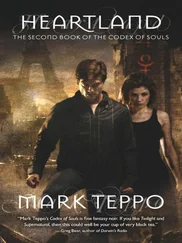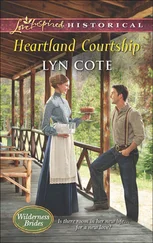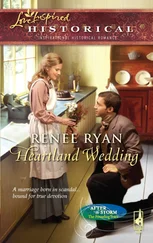I returned to my room on my hands and knees, oozing blood and pus. By the time I was soaking in the tub, my orchestra had stopped playing, and I, too, contemplated doubt with equanimity, even with pleasure. With the familiar (McCabe) gone, leaving a horrific chasm worming with serpents at the end of the map, doubt—musically implanted, repeated doubt—had become familiar. Why and where McCabe had gone, why she hadn’t told me, and why I cared now, seemed legitimate subjects of inquiry. Physical pleasure and its concomitant indolence fueled this benign view: the warm water luxuriously covered my body up to my throat. This was my first bath in a month. I left my feet out, propped on the tub ledge, wrapped in clean towels. Tomorrow I might get them wet and see what happened.
I examined McCabe’s disappearance dispassionately. An emergency could explain the suddenness of her departure. Could it explain her silence, too? I imagined McCabe getting a dead-of-night phone call from her boy assistant: her gallery, along with Manhattan’s southern tip, set on fire by Caliphate terrorists, or flooded, or blown off (all of which had happened more than once before, although her gallery was unscathed each time). McCabe calling Elmira’s only cab and rushing to the state capital, where she rented a plane to fly her to Chicago (the lone commuter flight to that destination today, Thanksgiving Day, being at 7:00 p.m. instead of the usual 7:00 a.m., which I knew because I had been keeping tabs on all means of exiting Elmira, for my own sake). McCabe arriving in New York from Chicago to find the tip of the island in flames, or at least her gallery. McCabe caught up in the testosterone hysteria of the heroic rescuers, maybe even escorted away in handcuffs for trying to jump a Firecop barricade to save her precious Beuys, still in its German crate, or hurt by a falling cornice, or huddled with her lawyers and insurance people, unable to place the one call even mass murderers are entitled to, so she could let me know, out of common courtesy, her whereabouts. As I pulled myself out of the tub and onto the cold, tiled bathroom floor, I swore to stop scratching the bloody crust of McCabe’s disappearance. Pragmatism and action were all that mattered now. McCabe had to be brought back to the slaughterhouse.
After sanitizing my feet with the washes and ointments in McCabe’s nurse’s bag and putting on a pair of clean white socks, I crawled on my belly and elbows from bathroom to bed to spare my knees, pushing the bag ahead of me with my forehead. My feet looked less unnatural than when I had taken off the bandages. Whether this was an objective fact or mere habituation, it’s hard to tell. My knees, though, looked like raw steak, with strips of dead, bruised skin still attached here and there. I treated them with whatever potions seemed to apply. The storm’s howl had turned into a spasmodic whistle. The rain had stopped. A thin sliver of the new moon peeked out from behind the slow-moving clouds, still low and dense like bags of coal, a reminder that the storm could resume if it wished. I fell asleep only after I swallowed a narcotic pill from my pillow cache.
The phones were still dead the day after Thanksgiving. Petrona did not show up for work. The Little Ohio had risen higher than in the celebrated flood of 1863 when two-thirds of Elmira was buried in mud and left there because most able men were fighting with Grant in Vicksburg. Elmira was rebuilt on top of its own grave in brick this time, not wood, when the survivors returned. All day, the local radio played Perry Como and The Beatles in an orgy of self-congratulation disguised as public service. Churches vied with one another to offer sanctimonious, useless emergency services, generally involving prayers and donuts. Idiots who let their dogs and cats roam and shit everywhere pleaded tearfully for their safe return. The pièce de résistance, however, was The Witnessing, as the radio announcers solemnly called it, a fifteen-minute call-in segment every hour, during which the town’s remaining whites disgorged family memories of that great flood and heroic war. This is what we have and you will never have: a genetic memory of Elmira’s foundation, and second foundation after the great flood. They hammered that in all day long without actually saying it. You just had to listen to their repressive gasps. Forbidden to call a nigger a nigger, a spic a spic, a wop a wop, etcetera, on the radio and in most public forums, Elmira’s whites had created a new tongue rich in elisions, and syntactic and semantic black holes, where the now unmentionable were buried and forgotten, as if they had never existed, with no markers left on their linguistic graves. The new flood was a time machine, a tongue-loosener, a fountain from which sprang a fraternity of pale hue. Elmira was jubilant.
The Judge’s binoculars confirmed that the river was lapping at the base of the bridge, cutting off Round Hill from the town, just as the radio announced. Elmira’s Main Street, however, was nothing like the 1863 photographs I had seen at the local historical society as a child, when I still thought the word “Elmiran” applied to me, too. The windows of shops and parked cars glistened in the morning sun, intact. I could see three high-wheeled trucks slowly making their way from the county building to City Hall. Two rubber boats sat idle on one side next to a building, maybe waiting to ferry white flood victims to a church donut-prayer service. The Firecops were on their way, the radio trumpeted. Elmira could enjoy its day in the water.
Looking at the rich brown river stew of mud and detritus swirling angrily at the Shangri-La bend, the last visible point from my window, I felt the full gravity of McCabe’s absence. Gravity in the physical, not just the moral, sense. Skull-crushing, eye-popping, Jupiterian gravity. Would killing her restore the universal laws of physics? My mind said, Yes, Yes, Yes, but my body said. No, Never. You will feel her weight until you die. It was around midday, and the sun seemed to stand still in the cloudless sky. I knelt in front of the window, looking at the river. My shadow was a tiny black circle around my knees. I vowed again to kill McCabe even if it was not to be a cold-blooded, remorseless, liberating crime, but a guarantee of everlasting suffering. Tears poured out of my eyes. They rolled down my face and dropped on my chest and onto the floor, unstoppably.
I couldn’t live without her.
I had to get her back. Killing and suffering were better than this unbearable longing. No need to atone or repent: killing McCabe was as righteous now as when the Tongues of Fire first ordered it.
With the phones dead, the bridge to Elmira impassable, and my feet too mangled to drive, writing a letter to McCabe was all I could do on that endless day after Thanksgiving. I sat in bed propped up by many pillows, with one of the Judge’s yellow legal pads and a pen found at the bottom of his desk drawer. This was the first time my hands had touched writing tools since the New York meltdown. Hours later, the pad was still pure yellow, and the pen had long been dropped on the floor. If I had been able to write her a letter, one of those brilliantly devious, skillful eighteenth-century frog letters that tease answers without seeming to ask questions, I would have asked McCabe what I had to do to make her want to come back.
I did not want to force her. Other than pretending a serious illness, I had given up on coercion. Besides, if she refused to come back even if I was “gravely ill,” my humiliation would be absolute. I could not risk it. More subtle ways had to be found to plant in her the desire to return. Perhaps the way to bring her back could be hidden in the reasons that made her leave. On this second day without McCabe, the business emergency hypothesis seemed ludicrous. Could she be with Bebe? I kept pushing the gaseous suspicion to the back of my mind, not allowing it to acquire shape and volume. Jealousy was the worst advisor at this moment, but the suspicion kept returning. If she was with Bebe, was it for good, or a fleeting relapse? To distract myself from this thought and its complications (who would I be most jealous of, Bebe or McCabe, and why?), I reviewed my last night with McCabe.
Читать дальше












